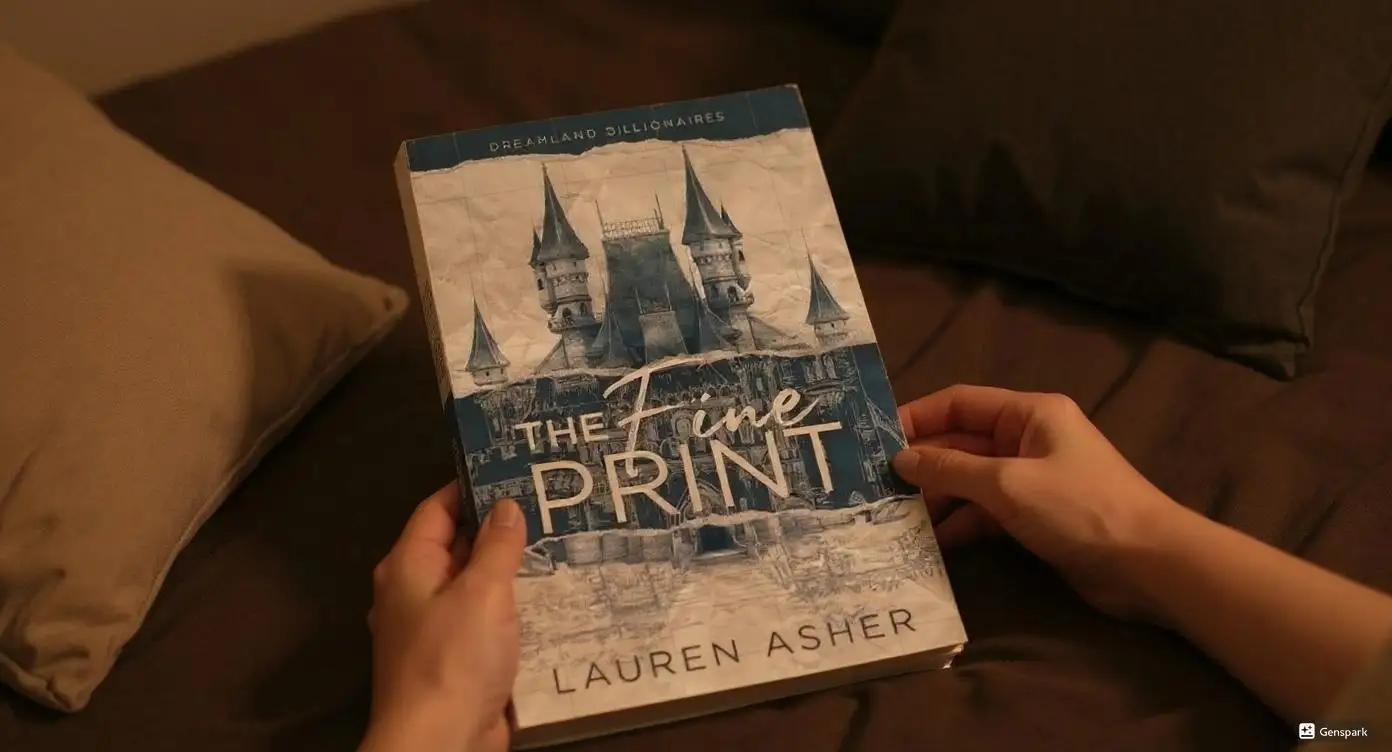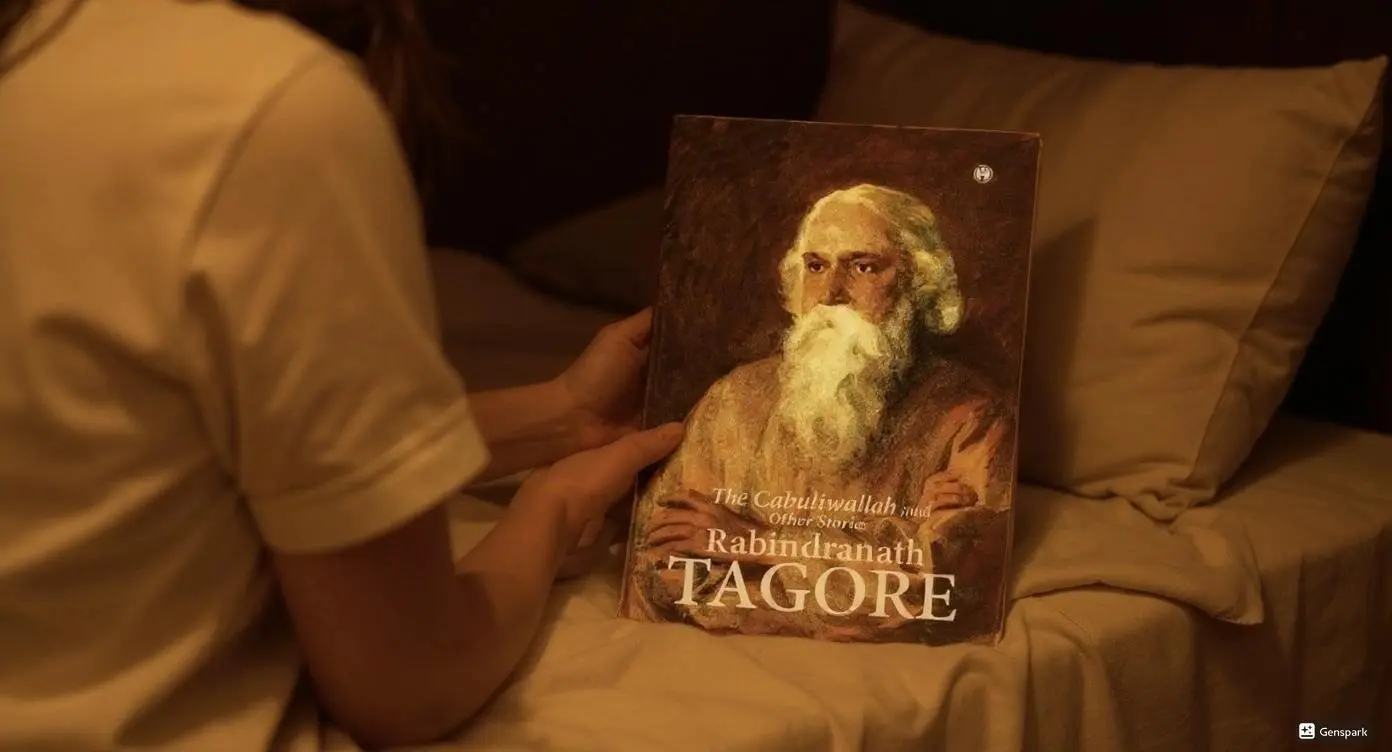I picked up this book after hearing about its twisted premise – a woman systematically infiltrating another woman’s perfect life. The Last Mrs. Parrish promises “jealousy, betrayal, and revenge” wrapped in psychological manipulation, and I needed to see if it could deliver on such bold claims. After staying up until 2 AM turning pages in my dimly lit reading nook, I can say this domestic thriller left me both fascinated and frustrated.
Written by sister duo Lynne and Valerie Constantine under the pen name Liv Constantine, this debut novel tackles class warfare through the lens of female rivalry. The story follows Amber Patterson, a calculating woman who infiltrates the glamorous world of Daphne Parrish to steal her wealthy husband, Jackson. What starts as a straightforward manipulation tale transforms into something far more complex when Daphne proves she’s not the naive victim Amber assumed.
This psychological thriller excels in its character development and unexpected plot revelations, though it stumbles with pacing issues in the middle section. The authors craft a compelling examination of privilege, domestic abuse, and the lengths people go to escape their circumstances. While the writing occasionally feels heavy-handed, the story’s core premise and shocking twist make it worth the read for fans of domestic suspense.
Key Takeaways
This book demonstrates how appearances can be deceiving in the world of Connecticut’s elite society.
The story reveals that victims of manipulation often possess more agency and intelligence than their predators assume.
Class resentment drives people to extreme measures when they feel excluded from privilege and luxury.
Domestic abuse takes many forms, including psychological manipulation and financial control within seemingly perfect marriages.
The narrative structure proves that shifting perspectives can completely transform how readers understand character motivations and plot developments.
Basic Book Details:
- Title: The Last Mrs. Parrish
- Author: Liv Constantine (Lynne Constantine and Valerie Constantine)
- Publication: October 17, 2017 by Harper
- Genre: Psychological Thriller, Domestic Suspense
- Pages: 352
- Series: Standalone (with a prequel novella)
- Main Characters: Amber Patterson (ambitious social climber), Daphne Parrish (wealthy socialite), Jackson Parrish (successful businessman)
Plot Summary And Narrative Structure
Three-Part Story Architecture With Dual Perspective Shifts
The novel employs a brilliant three-act structure that completely reframes the story in its final section. I was initially reading what seemed like a straightforward cat-and-mouse game between Amber and Daphne. The first two sections follow Amber’s calculated infiltration of the Parrish family through their shared charity work.
The pacing builds steadily as Amber befriends Daphne, manipulates her way into their social circle, and seduces Jackson. Constantine creates mounting tension through Amber’s increasingly bold moves and close calls. The narrative voice switches between Amber’s scheming internal monologue and omniscient observations of the Parrish family dynamics.
Amber Patterson’s Manipulation Strategy And Social Climbing Scheme
Amber’s strategy unfolds like a masterclass in psychological manipulation. She researches the Parrish family obsessively, learning about Daphne’s deceased sister to create a fake connection through a fabricated charity story. The authors detail her calculated moves – from her wardrobe choices to her carefully crafted personality adjustments.
I found myself both disgusted and impressed by Amber’s thoroughness. She studies Daphne’s mannerisms, preferences, and vulnerabilities with scientific precision. The manipulation extends beyond Jackson to include their children and social circle, showing how deeply she embeds herself in their lives.
Character Analysis And Psychological Profiles
Amber Patterson’s Sociopathic Tendencies And Class Resentment Motivations
Amber emerges as a fascinating antagonist driven by deep-seated class resentment and narcissistic tendencies. Her backstory reveals a working-class upbringing that fueled her obsession with wealth and status. Constantine portrays her as intelligent but morally bankrupt, capable of forming strategic emotional connections while feeling genuine affection for no one.
Her sociopathic traits manifest in her ability to mimic empathy while calculating her next move. I was struck by how she views people as chess pieces in her game of social advancement. The authors effectively show how her charm masks a complete lack of genuine human connection.
Daphne Parrish’s Hidden Strength And Strategic Counter-Manipulation
The revelation that “Daphne realized that Amber was trying to steal Jackson, and she has been secretly helping her” completely transforms the story. What appeared to be naive victimhood reveals itself as brilliant strategic thinking. Daphne uses Amber as her escape route from an abusive marriage, demonstrating intelligence and long-term planning that rival Amber’s schemes.
This character development elevates the entire narrative from a simple manipulation story to a complex examination of female agency. Daphne’s apparent weakness becomes her greatest strength, allowing her to orchestrate her own freedom while Amber believes she’s in control.
Writing Style And Literary Techniques
Narrative Voice Transitions And Unreliable Narrator Elements
The writing style shifts effectively between Amber’s first-person perspective and third-person omniscient narration. Constantine uses Amber’s voice to create intimacy with her scheming thoughts while maintaining enough distance to surprise readers with withheld information. The unreliable narrator technique works particularly well in obscuring Daphne’s true awareness of the situation.
I appreciated how the authors handle the perspective switches without confusing readers. Each voice feels distinct and serves the story’s revelatory structure. The writing maintains suspense through strategic information management rather than cheap misdirection.
Pacing Issues And Domestic Thriller Genre Conventions
The plot “moves quite slowly” in the middle sections, creating momentum issues that nearly derailed my reading experience. The authors spend too much time on Amber’s day-to-day infiltration tactics without advancing the central conflict. This pacing problem reflects the challenge of sustaining tension in a plot that relies heavily on its final revelation.
The genre conventions feel familiar – wealthy Connecticut setting, charity fundraisers, and marital secrets. Constantine doesn’t reinvent domestic thriller tropes but executes them competently. The writing occasionally veers into melodrama, particularly in dialogue exchanges between characters.
Themes And Social Commentary
Wealth Privilege Dynamics And Connecticut Elite Society Critique
The novel offers sharp observations about how wealth insulates people from consequences while creating its own forms of imprisonment. The authors effectively critique the hollow nature of elite social circles, where appearances matter more than authentic relationships. I found their portrayal of charity work as social currency particularly astute.
The Connecticut setting serves as more than backdrop – it becomes a character representing exclusivity and inherited privilege. Constantine shows how geographic and social barriers maintain class distinctions, making Amber’s infiltration both more difficult and more desperate.
Domestic Abuse Patterns And Toxic Masculinity Representation
Jackson Parrish embodies toxic masculinity through his controlling behavior and emotional manipulation of both women. The authors effectively demonstrate how abuse takes multiple forms, from financial control to psychological intimidation. His treatment of Daphne reveals patterns that make her eventual manipulation of the situation more understandable.
The domestic abuse themes add weight to what could have been a superficial thriller. Constantine shows how abuse victims develop survival strategies that outsiders might misinterpret as weakness or complicity.

Pros
The plot twist genuinely surprised me despite my experience with psychological thrillers. Constantine creates two compelling female characters who defy initial impressions through their complexity and intelligence. The exploration of class warfare feels authentic and adds depth beyond typical domestic suspense plots.
The three-part structure effectively builds to its revelation while maintaining reader engagement. I appreciated how the authors avoid simple victim-perpetrator dynamics, instead creating morally ambiguous characters whose motivations feel realistic. The Connecticut elite setting provides rich material for social commentary without becoming heavy-handed.
The psychological manipulation tactics feel researched and believable. Both Amber and Daphne employ strategies that demonstrate deep understanding of human psychology. Their chess game creates genuine suspense once readers understand both players possess formidable skills.
Cons
The middle section drags considerably, with repetitive scenes of Amber’s infiltration that could have been condensed. Some dialogue feels stilted, particularly when characters voice their motivations too explicitly. The writing occasionally tells rather than shows character development, reducing the impact of psychological insights.
Certain plot elements require significant suspension of disbelief, particularly regarding how long Amber’s deception remains undetected. The authors sometimes prioritize plot mechanics over character consistency, creating moments where actions feel motivated by narrative necessity rather than authentic character development.
The ending, while surprising, doesn’t fully satisfy all the story threads established earlier. Some character motivations feel underdeveloped, particularly Jackson’s psychology and his relationship patterns with both women.
Reader Experience And Accessibility
| Reading Experience | Assessment |
|---|---|
| Accessibility Level | Moderate – requires attention to detail |
| Emotional Impact | High – themes of manipulation and abuse |
| Page-turner Factor | Strong in first and final acts |
| Content Warnings | Emotional abuse, manipulation, mild violence |
| Recommended Age | Adult (18+) |
| Genre Comparison | Rating |
|---|---|
| Character Development | 7/10 |
| Plot Complexity | 8/10 |
| Writing Quality | 6/10 |
| Psychological Depth | 7/10 |
| Pacing | 5/10 |
I read this book over two evenings in my favorite armchair by the window, with rain pattering outside – the perfect atmosphere for psychological suspense. The story gripped me immediately, though I found myself skimming through some middle sections that felt repetitive. The final act had me frantically turning pages, desperate to see how the authors would resolve their complex setup.
The emotional impact stays with you. I found myself thinking about the characters’ motivations days after finishing, particularly Daphne’s long-term strategy and what it reveals about survival in abusive relationships. This reflects the authors’ success in creating psychologically complex characters rather than simple archetypes.
Performance as a Genre (Psychological Thriller)
Constantine delivers a solid entry in the domestic thriller genre without breaking significant new ground. The psychological manipulation elements work well, though the execution feels safe rather than groundbreaking. The book struggles with genre identity, fitting somewhere between “dark romance” and “psychological suspense” without fully committing to either approach.
The thriller elements succeed best in the final act when all deceptions are revealed. The psychological complexity elevates it above typical domestic suspense, but pacing issues prevent it from reaching the genre’s top tier. Readers seeking fast-paced psychological manipulation will find satisfaction, though those expecting constant tension may feel disappointed by the slower middle section.
Target Audience Recommendations
This book works best for readers who enjoy character-driven domestic thrillers with complex female protagonists. Fans of Gillian Flynn’s sharp psychological insights and B.A. Paris’s domestic suspense will find familiar territory here. The class warfare themes will resonate with readers interested in social commentary wrapped in thriller plots.
I recommend this for book clubs seeking discussion-worthy psychological complexity. The moral ambiguity of both main characters provides rich material for debate about victimhood, agency, and survival strategies. Adult readers who appreciated “Gone Girl” or “The Girl on the Train” should find this engaging, though it lacks those books’ literary sophistication.
Readers seeking constant action or straightforward good-versus-evil dynamics should look elsewhere. This story rewards patience and attention to psychological detail rather than delivering nonstop thrills.
Comparative Analysis With Similar Works
The Last Mrs. Parrish fits alongside other domestic thrillers like Big Little Lies in examining how appearance masks reality in affluent communities. However, Constantine’s focus on deliberate manipulation distinguishes it from Moriarty’s more organic character developments.
The psychological complexity rivals The Silent Patient in its exploration of hidden motivations, though Constantine’s revelation feels less dramatically satisfying. The class warfare elements echo The Talented Mr. Ripley, but lack Highsmith’s moral ambiguity and literary depth.
Compared to recent domestic thrillers, this book offers stronger character development than many entries in the genre. The dual female protagonist structure provides more complexity than typical single-perspective narratives, though the execution doesn’t quite match the ambition.
Final Verdict
The Last Mrs. Parrish succeeds as an engaging domestic thriller that transforms familiar tropes through its complex character development and surprising revelations. While pacing issues and occasional heavy-handed writing prevent it from reaching classic status, the psychological depth and social commentary make it a worthwhile read for genre fans.
The book’s greatest strength lies in its refusal to present simple victims or villains. Both Amber and Daphne possess agency, intelligence, and moral complexity that elevates the story beyond typical domestic suspense. Constantine’s exploration of class resentment and domestic abuse adds substance to what could have been a superficial thriller.
I found myself both entertained and frustrated by this book – entertained by its clever plotting and character development, frustrated by its pacing and occasionally clunky execution. The final revelation reframes everything that came before, rewarding careful readers who picked up on subtle clues throughout the narrative.
Dionysus Reviews Rating: 6/10
This book delivers solid psychological complexity with memorable characters, though technical execution issues prevent it from reaching higher ratings. The plot twist alone makes it worth reading for domestic thriller fans, even if the journey occasionally feels longer than necessary.
The authors demonstrate clear talent for psychological complexity and character development. While this debut shows room for improvement in pacing and prose quality, it establishes Constantine as a voice worth following in the domestic thriller genre. I’m curious to see how their subsequent books build on these strengths while addressing the weaknesses evident here.
For readers seeking intelligent domestic suspense with morally complex characters, The Last Mrs. Parrish provides satisfaction despite its flaws. The social commentary and psychological depth distinguish it from lighter domestic thrillers, making it a solid choice for readers who appreciate substance alongside their suspense.
Sip The Unknown—Discover Stories You Never Knew You’d Love!
Dionysus Reviews Has A Book For Every Mood
Biography & Memoir
Fiction
Mystery & Detective
Nonfiction
Philosophy
Psychology
Romance
Science Fiction & Fantasy
Teens & Young Adult
Thriller & Suspense
Frequently Asked Questions
Does Daphne really not know about Amber’s manipulation from the beginning?
The brilliant twist reveals that Daphne becomes aware of Amber’s intentions early in their relationship and decides to use Amber’s manipulation as her own escape route from Jackson’s abuse.
She’s actually orchestrating events behind the scenes, making her far more strategic than she initially appears. This revelation completely reframes all their previous interactions and shows Daphne’s incredible intelligence and survival instincts.
How realistic are Amber’s manipulation tactics throughout the story?
Amber’s methods feel authentically researched and psychologically sound. Her approach of creating false emotional connections through shared tragedy, studying her target’s preferences and vulnerabilities, and gradually inserting herself into their social circle reflects real manipulation patterns.
The authors clearly understand how skilled manipulators operate, making Amber’s techniques both disturbing and believable.
What makes Jackson Parrish such an effective antagonist despite limited page time?
Jackson represents toxic masculinity through his controlling behavior, financial manipulation, and emotional abuse patterns that feel authentic rather than cartoonish.
The authors reveal his true nature gradually through both women’s perspectives, showing how abusers can appear charming publicly while being controlling privately. His treatment of Daphne explains her desperate need for escape and willingness to use Amber’s scheme.
Why does the pacing slow down so dramatically in the middle section?
The authors spend too much time detailing Amber’s day-to-day infiltration tactics without advancing the central conflict or revealing new character insights. These repetitive scenes of charity events and social manipulation could have been condensed significantly.
The pacing issues likely stem from the challenge of maintaining tension when the major revelation comes in the final act.
How does the ending change the entire meaning of everything that happened before?
Learning that Daphne was aware of and facilitating Amber’s manipulation completely transforms every interaction between them. Scenes that seemed to show Daphne’s naivety actually demonstrate her strategic thinking and long-term planning.
The ending reveals that what appeared to be a story about a clever manipulator destroying an innocent victim was actually about two intelligent women using each other to escape their respective traps.









